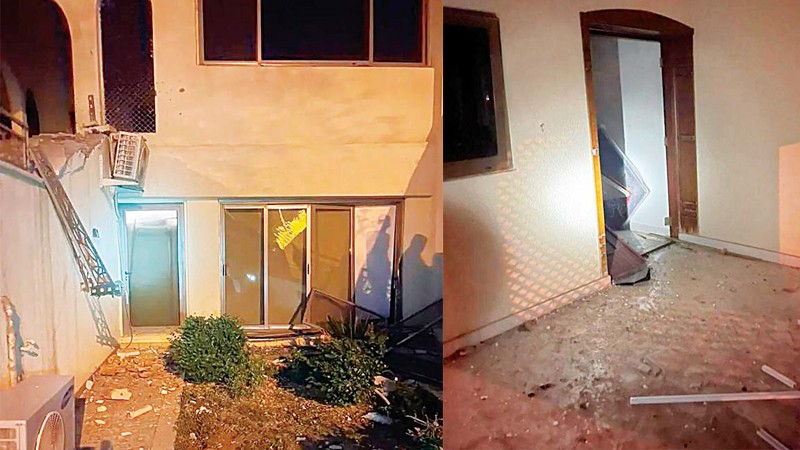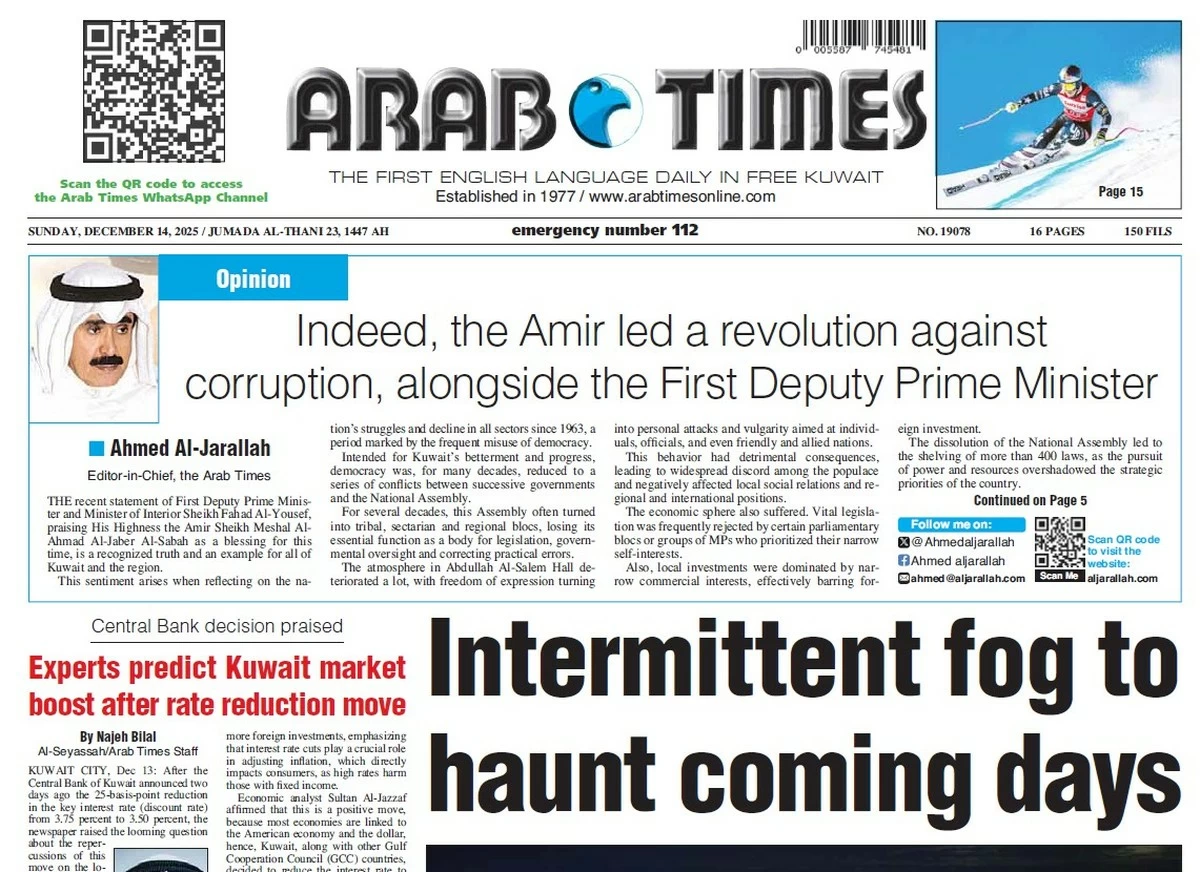07/11/2021
07/11/2021
KUWAIT CITY, Nov 7, (Agencies): Kuwaiti Ministry of Foreign Affairs has strongly condemned the assassination attempt on Iraq’s Prime Minister Mustafa al-Kadhimi earlier Sunday. The ministry said in a statement that this criminal act does not only target the Prime Minister, but it also targets Iraq’s unity and achievements made at all levels, voicing confidence that the Iraqi people are able to face any act that undermines their national unity. It emphasized that Kuwait stands with Iraq in solidarity and supports all the measures taken to preserve its security, stability and sovereignty. Troops and patrols deployed throughout Baghdad on Sunday following the failed assassination attempt with drones that targeted the prime minister’s residence.

The attack significantly raised tensions, sparked by the refusal of Iran-backed militias to accept last month’s parliamentary election results. Seven of Al-Kadhimi’s security guards were wounded in the attack by at least two drones in Baghdad’s heavily fortified Green Zone area, according to two Iraqi officials. They spoke on condition of anonymity because they were not authorized to give official statements. Al-Kadhimi suffered a light cut, an aide said. He later appeared on Iraqi television, seated behind a desk in a white shirt, looking calm and composed, with what appeared to be a bandage on his left hand. “Cowardly rocket and drone attacks don’t build homelands and don’t build a future,” al-Kadhimi said during the television appearance. Later on Sunday, he met with Iraqi President Barham Salih and headed a government security meeting. The sound of an explosion and heavy gunfire echoed across Baghdad from the direction of the Green Zone, which houses foreign embassies and government offices. Handout photos showed the damage to al-Kadhimi’s residence, including smashed windows and doors blown off their hinges
Scene
A video distributed later by security forces showed more damage: A van parked outside the residence badly mangled, a shallow crater near the stairs, cracks in the ceiling and walls of a balcony and broken parts of the building’s roof. Two small unexploded rockets were also filmed at the scene. There was no claim of responsibility for the attack, but suspicion immediately fell on Iran-backed militias who had been publicly attacking al-Kadhimi. They had been blamed for previous attacks on the green zone. The attack came amid a stand-off between security forces and the pro-Iran Shiite militias whose supporters have been camped outside the Green Zone for nearly a month. They gathered after rejecting the results of Iraq’s parliamentary elections, in which they lost around two-thirds of their seats.
“The assassination attempt is a dramatic escalation, crossing a line in unprecedented fashion that may have violent reverberations,” wrote Ranj Alaaldin, a nonresident fellow at the Brookings Institution, in a post on Twitter. Protests turned deadly Friday when the demonstrators tried to enter the Green Zone. Security forces used tear gas and live ammunition. There was an exchange of fire in which one protester affiliated with the militias was killed. Dozens of security forces were injured. Al-Khadimi ordered an investigation. Some of the leaders of the most powerful militia factions loyal to Iran openly blamed al-Kadhimi for Friday’s clashes and the protester’s death. Many of the faction leaders, who together are known as the Popular Mobilization Forces, or Hashd al-Shaabi in Arabic, converged on the funeral held for the protester Saturday. “The blood of martyrs is to hold you accountable,” said Qais al-Khazali, leader of the Asaib Ahl al-Haq militia, addressing al-Kadhimi in recorded comments to supporters.
“The protesters only had one demand against fraud in elections. Responding (with live fire) means you are the first responsible for this fraud.” On Sunday, several faction leaders dismissed the assassination attempt, suggesting it may be staged. Al-Khazali suggested the militias were being framed and called for an investigation. Other PMF leaders who condemned the attack blamed it on “third parties” seeking to incite strife. In the strongest criticism of the prime minister, Abu Ali al- Askari, a senior leader with one of the most hardline pro-Iran militias, Kataib Hezbollah, questioned whether the assassination attempt was really al-Kadhimi’s effort to “play the role of the victim.” “According to our confirmed information no one in Iraq has the desire to lose a drone on the residence” of al-Kadhimi, al- Askari wrote in a Twitter post. “If anyone wants to harm this Facebook creature there are many ways that are less costly and more effective to realize that.” Brig. Gen. Yahya Rasool, spokesman for al-Kadhimi and Iraq’s commander in chief, told the Beirut-based Al-Mayadeen TV that the drone flew in from southeast Baghdad at low altitude and could not be detected by defensive systems. Influential Shiite cleric Muqtada al-Sadr, who won the largest number of parliament seats in the Oct. 10 elections, denounced the “terrorist attack,” which he said seeks to return Iraq to the lawlessness and chaos of the past. While al-Sadr maintains good relations with Iran, he publicly opposes external interference in Iraq’s affairs.


